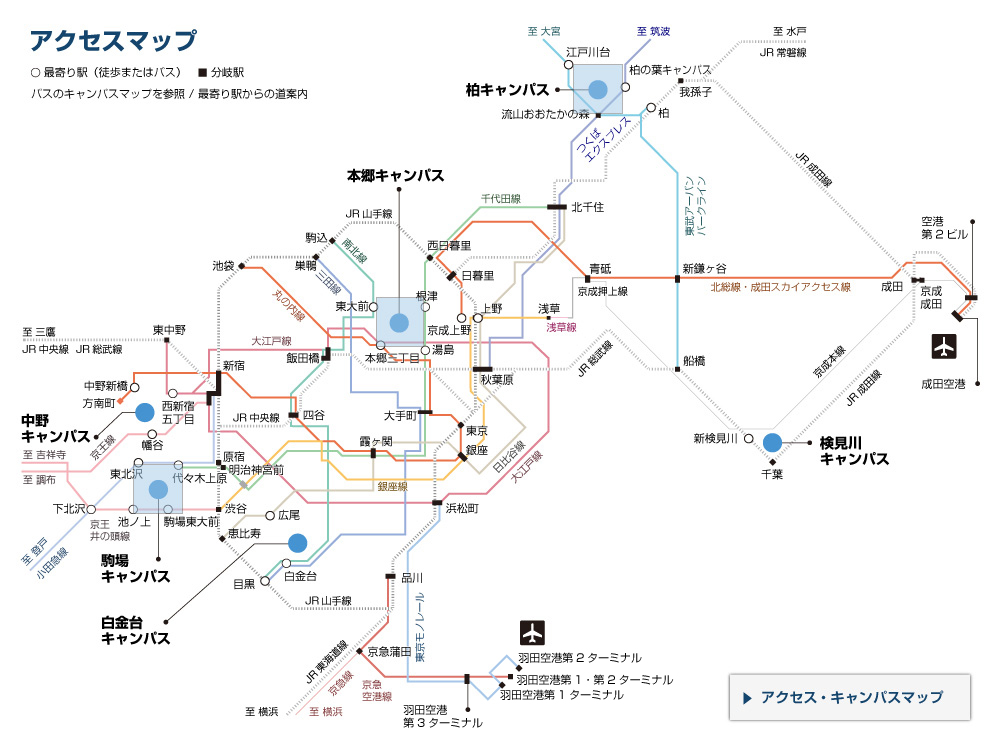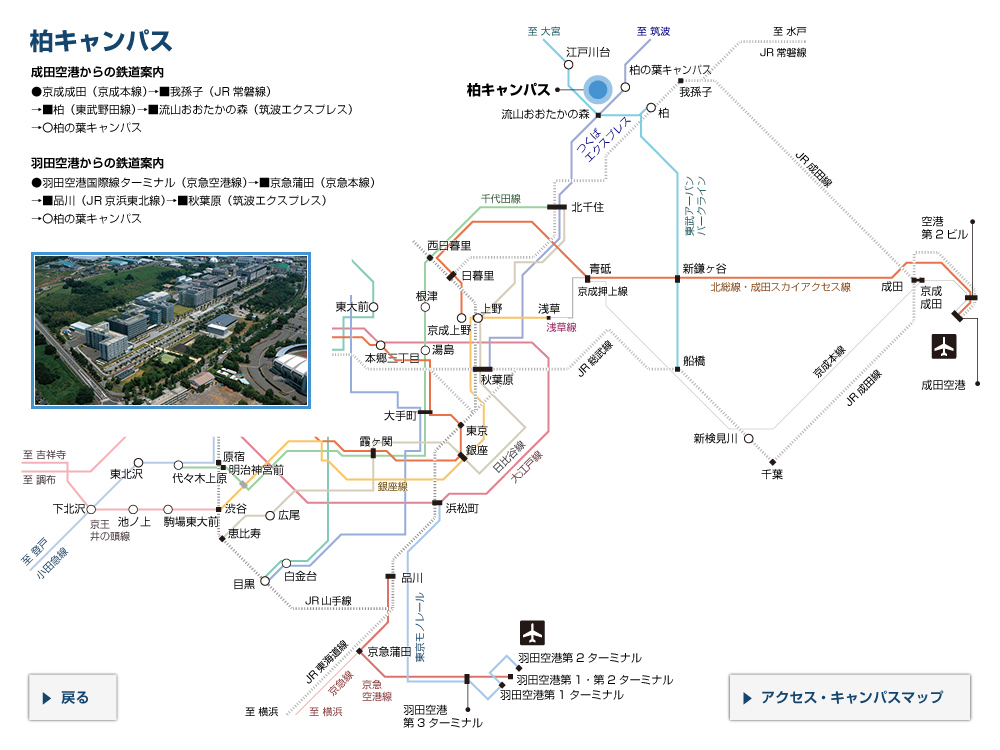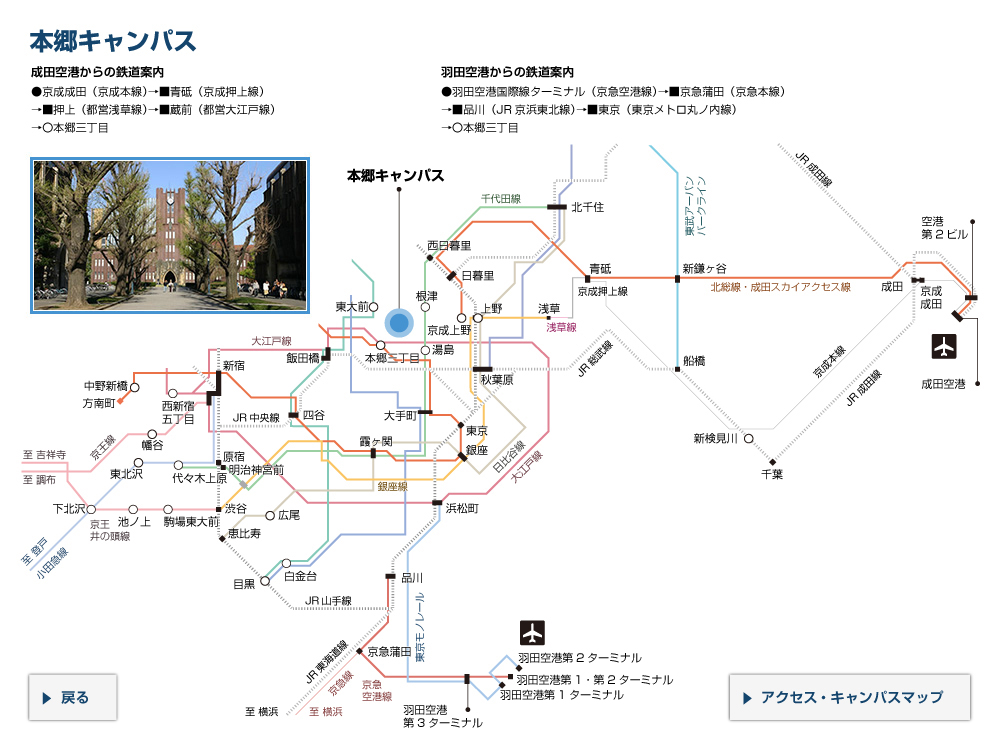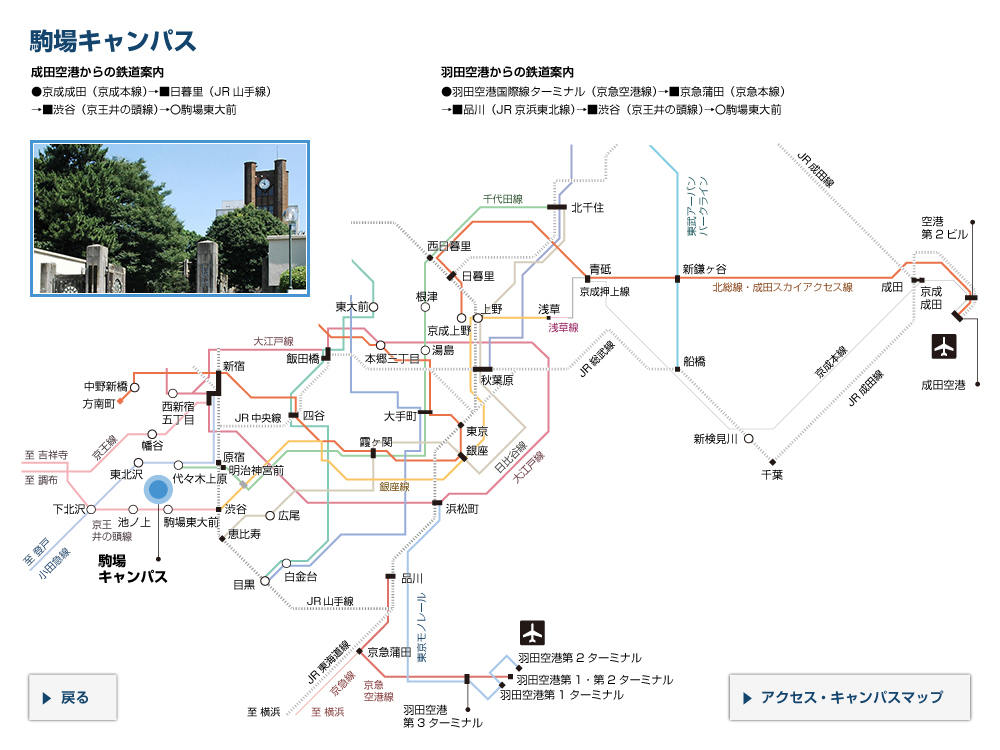令和4年度 東京大学秋季学位記授与式・卒業式 総長告辞
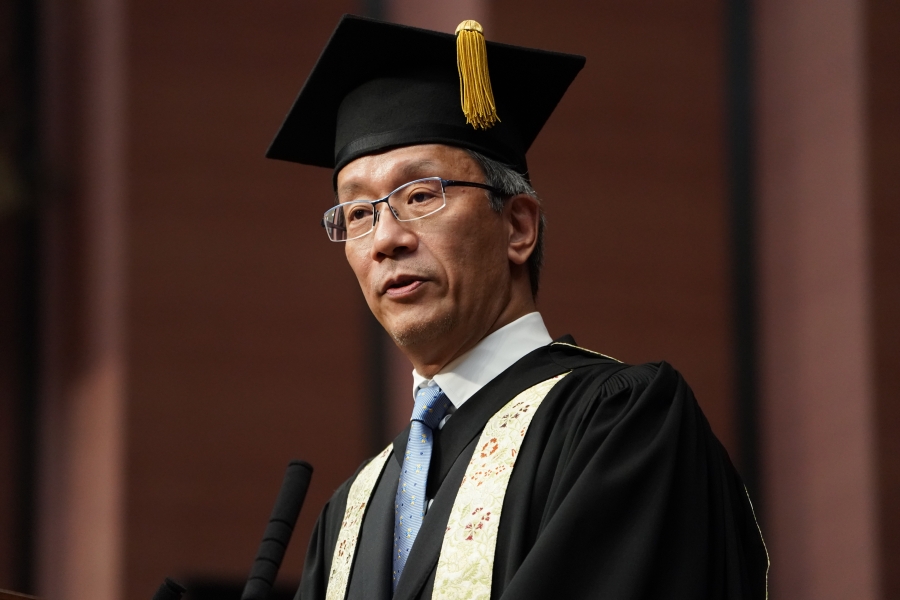

Address by the President of the University of Tokyo at the AY 2022 Autumn Commencement Ceremony
Let me begin by offering my warmest congratulations to you all. The degree you receive today is the University of Tokyo’s recognition that you learned enough and have the appropriate ability for a bachelor’s, master’s, doctoral, or professional degree. On behalf of the entire faculty and staff, I congratulate each of you for your hard work and dedication. I would like also to express my gratitude and congratulations to your families for their encouragement and support for you over many years.
As you look back on your time at the university, you are probably remembering more than just the challenges and successes you shared with your fellow students. You might have sometimes failed in your experiments or realized that your hypotheses were wrong. Or you might have got stuck trying to write your thesis. You were no doubt upset by the restrictions imposed by the COVID pandemic; you might have envied the achievements of your friends; or perhaps you sometimes felt alienated due to differences in language and culture. Those times are now behind you. Beginning today, you can stand on your own, with your degree in hand, and look ahead to brighter times to come.
Eighty-five years ago, in 1937, the political scientist Masao Maruyama also received his degree from the University of Tokyo. He later took a post in the Faculty of Law, and he went on to educate many scholars. One of his students was Emeritus Professor Hiroshi Watanabe. Professor Watanabe later recalled that Maruyama offered him some advice about studying Japanese political thought. “There is a saying,” Maruyama said, “that those who know only German in fact do not know German. Similarly, those who know only Japanese do not know Japanese, and those who know only Japan do not know Japan. If you want to study Japan, you first need to learn foreign languages.”
Maruyama was not merely encouraging the study of other languages. He was trying to explain what it means to understand human society deeply. We need to realize that our world is divided into many distinct areas by language. While the languages of others may be difficult for us to understand, only by learning them do we become able to see the world from different perspectives. Acquiring those different perspectives is where “knowing” begins.
Each of us thinks in our own language and perceives the world around us through the lens of that language. Learning to understand the languages of others allows us to transcend those limitations. Recognizing differences among people allows us to see what we have in common, just as seeing particularities lets us imagine the universal. Through our attempts to understand other languages and through our exposure to the worldviews of other people, we can attain a higher level of universal awareness. That is why multifaceted and pluralistic thinking is one of the most vital conditions for academic knowledge.
The importance of multifaceted thinking can be seen, for example, in contributions made at the University of Tokyo in the humanities. Here, scholars have created original knowledge based on both European and Asian languages and cultural history. They learned from modern European knowledge on the one hand while utilizing local knowledge from Asia on the other.
In the early 19th century, European knowledge was profoundly impacted by the discovery of Sanskrit, a language of ancient India. That discovery was important because it helped to reveal the origin and history of the languages of Europe. In his Lectures on the Philosophy of History, the German philosopher Georg Wilhelm Friedrich Hegel described the discovery of similarities between Sanskrit and European languages as a major historical breakthrough. He said it was like finding a whole new world. At that time, European university education emphasized the study of Latin not only because Latin had long been considered the basis for a liberal education. Although they were no longer spoken in everyday life, classical languages like Latin were the foundation for the international exchange of knowledge at a level beyond that of the native languages of the students. The discovery of Sanskrit as another classical language seemed to open the door to scholarly interactions within a wider world beyond Europe. It is easy to understand why Hegel was so excited.
Universities in Europe were changing then. Since the Middle Ages, European universities had often been like guilds, institutions dedicated to the classical education of the elite. But now they were starting to evolve into a modern higher education system that encouraged students to explore, think, and create new knowledge on their own. It is no coincidence that, around the same time, new academic disciplines emerged for studying the world’s languages, cultures, and religions.
When the University of Tokyo was founded in 1877, its educational system was based on the European model, and courses on Sanskrit were offered from early on. Junjirō Takakusu, who had studied at Oxford and Leipzig universities, was hired to teach in the Faculty of Letters. The renowned novelist Ōgai Mori, who died one hundred years ago, interacted with Takakusu and also studied Sanskrit. After graduating from the Faculty of Medicine, Mori went to Germany to study as a military doctor. He continued his study of German by delving into Latin as well, as Latin was a source for many European languages. He became very interested in Sanskrit, which was actively studied in Germany then. After returning to Japan, under the supervision of Takakusu, he wrote a monograph about the life and records of Ashoka the Great, the emperor who was the first to unite most of the Indian subcontinent.
Research on India at the University of Tokyo has produced many original studies that are highly regarded worldwide. That research has drawn both on European studies and on documents in Classical Chinese that were rarely examined in Europe. One of the researchers was Emeritus Professor Akira Hirakawa of the Faculty of Letters. Using materials written in Sanskrit and other languages of India, as well as the vast number of Chinese translations of Buddhist scriptures that had come to Japan through China, he was able to reveal the organizational structure of Indian Buddhist orders. The records he examined in those various languages showed that the earliest Buddhist orders in India, the sangha, had been autonomous egalitarian organizations of monks and nuns who were free to travel around different places. In that sense, the sangha were similar to university research groups today. In any case, the sangha spread throughout East and Southeast Asia and into the interior of the continent, changing their form from period to period and region to region. Hirakawa’s research on sangha was a groundbreaking achievement, the first of its kind in the world.
Thus, one of the most important features of the humanities at the University of Tokyo has been the multifaceted nature of our research. While incorporating much modern knowledge from Europe, our scholars have also utilized Asian academic knowledge. Through the study of materials in many languages and through dialogue with people with other perspectives, we have pursued an inclusiveness that respects pluralism and excludes nothing. We continue to maintain this important tradition today.
In September last year, the University of Tokyo announced UTokyo Compass. With the subtitle “Into a Sea of Diversity: Creating the Future through Dialogue,” UTokyo Compass is a statement of the guiding principles of our university. It describes the ideals to which UTokyo should aspire and the direction it should take. A few months ago, we also issued a statement on our commitment to diversity and inclusion, because no new intellectual creation can take place in an environment that excludes others. In both statements, we make clear that education and research are possible only when we learn from others who are different from us and when we coexist with diversity.
Let’s think about these issues from the perspective of two concepts related to my own research: Autonomous Distributed Systems and Emergent Systems. Autonomous Distributed Systems are systems that do not have a central mechanism that integrates and manages everything; instead, each element decides its behavior on its own, sometimes cooperating and sometimes competing with other elements to generate an overall order. Research began in this field around 1990 as a part of systems theory. Researchers have proposed structures consisting of multiple operating elements, such as autonomous robots without a central controller. The goal is to achieve better flexibility, versatility, and robustness than conventional centralized systems.
Emergent Systems are systems that aim to extend the order-generating mechanisms of Autonomous Distributed Systems through a more hierarchical and dynamic process. Research on emergent systems aims to go beyond systems theory to create functions through systems design. Also around 1990, Christopher Langton and others organized the first workshop on artificial life, and complex systems research became very active at places like the Santa Fe Institute. I remember well how researchers in a wide range of disciplines, from biology and economics to informatics, control engineering, and robotics, gathered at those workshops on emergent systems. The discussions were very heated.
In the study of emergent systems, characteristics that cannot be directly predicted from the behavior of individual elements are considered to be the cumulative result of the global order, that is, of the interaction of the elements with each other and with their environment. Researchers try to find ways to cause those characteristics to emerge as intended. In the process of their explorations, researchers have to delve into a wide range of academic fields, including brain research, corporate organization theory, behavioral economics, market design, and deep learning. I am sure that each of you can imagine many ways in which such research might be applied.
Earlier I mentioned Masao Maruyama’s focus on language. As a part of human culture, language is also, in a broad sense, an emergent system. In fact, research is now being conducted on creating emergent communication between robots and emergent grammatical rules among agents. University research itself can be thought of as an emergent system that transcends the boundaries of science and the humanities to create new networks and structures of knowledge.
This understanding of emergent systems is deeply connected to the importance of dialogue, which is at the heart of UTokyo Compass. The horrible military invasion that began in February this year revealed the fragility of our world order. No one asked for the widespread destruction and tragedy or the obliteration of normal daily life. That situation reminds us that, while war is often explained as the result of accumulated disagreements, the use of military force further strengthens and hardens those disagreements. It also reminds us that the loss of dialogue only increases suffering and animosity among people. Without dialogue, our problems become very difficult to solve.
The disruption in the international order caused by that invasion seven months ago and the resulting increase in insecurity have had many global repercussions. Not a day goes by when the news does not report on the growing refugee crisis, food shortages, higher prices, unstable energy supplies, and even nuclear threats. The climate change caused by greenhouse gas emissions requires coordinated action by all countries, but efforts to moderate climate change now face new challenges, with some people even suggesting that we should return to the use of fossil fuels temporarily. The many problems facing humanity today cannot be solved without multilateral dialogue across national borders. We must find new ways to move ahead together with people who speak other languages and who have different cultures. I sincerely hope that all of you will help to lead the way in this endeavor.
In closing, I would like to offer three suggestions that may serve as guidelines for you as you take your next big step ahead.
First, when you interact with people from diverse backgrounds, try to think flexibly about issues from the ground up. The days when we could set our goals in advance and think only about how to achieve those goals efficiently are ending. In today’s globalized world, the very sharing of ideals and goals is being questioned. We need to keep in mind what is desirable and for whom, and we need to adjust our goals constantly. In emergent systems, individual interactions create the global order, but that global order also constrains individual actions. In such interactive dynamic processes, a different optimal solution emerges each time. In human society as well, we must all learn how to find and share our goals through constant dialogue with others.
Second, even when you are working in your own field and dealing with your specific issues, please remember to act with a sense of universality. Your role as a human being goes beyond your specific time and location. The enlightened thinker of modern Japan whom Masao Maruyama most admired was the polymath Yukichi Fukuzawa. When Fukuzawa looked back on his own life, which spanned the very different Edo and Meiji periods, he said that he felt that he had both lived two lives in one body and been one person with two bodies. Today, even more so than in Fukuzawa’s time, we need to live two concurrent lives, to fulfill our roles as professionals while also meeting our responsibilities as citizens and human beings. Global problems such as climate change cannot be solved by specialists alone; they must be confronted by researchers in every field, and each one of us must understand our role as an individual as well. I hope that each of you, having studied at the University of Tokyo, will commit yourself to playing an active part in society in multiple ways.
Third, I hope that you will both cherish the friends you have made here and expand your personal networks into the wider world. I mentioned earlier the sangha, the autonomous organizations of Buddhist monks and nuns, and the important role played by those newly formed intellectual communities in human history. When Japan was first being modernized, new organizations arose called shachū or kaisha. These were groups of entrepreneurs that gave birth to a new politics, a new economy, a new culture for our country. Today, similar new communities are emerging that involve people throughout the world, and they are beginning to play an important role in global transformation. At the University of Tokyo, we are especially committed to supporting the creation of emergent networks through our alumni associations, and I urge each of you to take part in them as well.
On the occasion of your graduation today, as you get ready for your next step forward, please take pride in what you have learned at the University of Tokyo. And as you prepare to take off into the clear blue sky of the future, may the wisdom you have cultivated here open up a brighter tomorrow for each of you and for the entire human race. I congratulate you all once again, and I look forward with the highest hopes to what lies ahead of you. Thank you all very much.
FUJII Teruo
President
The University of Tokyo
September 22, 2022
(和文)令和4年度 東京大学秋季学位記授与式・卒業式 総長告辞
皆さん、本日はおめでとうございます。今日、皆さんが手にされた学位記は学士、修士、博士の学位、あるいは専門職学位にふさわしい能力と教養を有していることを、東京大学が認定するものです。皆さんのこれまでの努力と学問への専心に敬意を表し、教職員を代表して、心よりお祝いを申し上げます。そして皆さんを励まし支えてくださったご家族の方々にも、感謝の念と祝福の意をお伝えしたいと思います。
皆さんがいま思い出しているのは、学友と共有した苦労や、成功の喜びなどだけではないでしょう。在学中、ときには実験に失敗し、あるいは仮説の間違いに気づき、論文を書けずに行き詰まることもあったと思います。また、コロナ禍のさまざまな行動制限に葛藤を覚えたり、友人の活躍がうらやましく思えたり、あるいは、言語や文化の違いから疎外感を感じたりしたこともあったのではないでしょうか。しかし、いま、皆さん自身が、学位にふさわしい存在として自立し、光り輝いていることを忘れないでください。
85年前に皆さんと同じく、東京大学で学位を取り、後に法学部で教職につき多くの学者を育てた政治学者に丸山眞男がいます。日本政治思想を研究しようと決めたときに、丸山から受けたアドバイスを渡辺浩名誉教授が回想しています。
ドイツ語しか知らない者はドイツ語を知らないという言葉がある。同様に、日本語しか知らない者は日本語を知らず、日本しか知らない者は日本を知らない。したがって日本を研究しようと思うなら、まず外国語を学ぶことが必要である。
この言葉は、さまざまな外国語の学習をただ奨励しているのではありません。人間社会を深く理解するとはどういうことかを教えているのです。つまり、人間の世界が多くの言語空間に分かれていることに気づかねばならない。そして、自分には理解しにくい他者の言語をとおしてこそ、自分が生きる世界を別な観点から見ることができるようになる。「知る」ことは、そこから始まるのだと教えているのです。
人間はそれぞれ自らの言語で思考し、自分を取りまく世界を認識しています。だからこそ、他者の言語を理解することは、自分の言語での認識を超えることでもある。差異の発見はすなわち共通を認識することでもあり、特殊の自覚はとりもなおさず普遍を想像することであるからです。言い換えるなら、他の言語を理解しようとする姿勢において、あるいは他者の世界観に触れることをとおして、より水準の高い、普遍的な認識に到達できるのです。つまり「複眼的な思考」、あるいは「多元的な思考」こそが、学知のもっとも重要な条件の一つだと言ってよいでしょう。
複眼的な思考の重要性を、東京大学の人文知のありかたから考えてみましょう。東京大学は、ヨーロッパとアジアの両方の言語や文化の歴史を踏まえ、一方でヨーロッパの近代知を学びつつ、他方でアジアに蓄積した「地域固有の学知」を活用することによって独創的な知を作ってきました。
19世紀の初め、古代インドの言語であるサンスクリット語の発見は、ヨーロッパの知に大きな影響を及ぼしていました。ヨーロッパ諸語の起源と歴史の解明に有効であることが明らかになったからです。ヘーゲルはその歴史哲学の講義で20数年来のサンスクリット語の発見と、サンスクリット語とヨーロッパ語とのつながりの発見は新大陸の発見に比すべき歴史上の大発見だと評しています。ヨーロッパの大学教育において、ラテン語の学習が重視されたのは、ただ古典古代の教養だったからではなく、いまはもう誰も日常では話していない古典語が、それぞれの母語をこえたレベルでの国際的な学知の交流を支える基盤だったからです。そこに「ヨーロッパ」を超える広がりにおいて、もうひとつの古典語としてサンスクリット語が発見され、さらに広い「世界」の交流を論じられる扉が開いたように思えたのですから、ヘーゲルの興奮も理解できます。
じつは同時期にヨーロッパにおける大学のありかたも変わり、ときに中世の大学以来のギルドとしての性格が強く、あるいはエリート層の教養取得の機関でしかなかった制度から、自分で探究し考え新たなものを生みだしていく近代の高等教育システムへの転換が進みました。そこで世界の言語・文化・宗教などを考察する、新たな学問が生みだされたのも、偶然の一致ではないでしょう。
ヨーロッパの新たな大学制度を導入して1877年に設立された東京大学では、かなり早い時期にサンスクリット語学の講座を開講し、オックスフォード大学やライプツィヒ大学などで学んだ高楠順次郎を文学部に採用します。今年、没後100年で話題となっている森鴎外も、高楠と交流しサンスクリット語を学んだ一人です。東京大学医学部を卒業後、軍医としてドイツへ留学した森鴎外は、ヨーロッパ諸語の源となるラテン語にまでさかのぼってドイツ語を学びました。留学先で盛んに研究されていたサンスクリット語にも深い関心を抱き、帰国後、インド亜大陸のほとんどをはじめて統一したアショーカ王の事績や資料を、高楠の校閲の下で学術論文のような作品にまとめています。
東京大学のインド学の特質は、ヨーロッパの学問の成果とそこではほとんど用いられなかった漢語資料の両方に基づいて、世界で高く評価される独創的な研究の数々を生みだしたことにあります。文学部の平川彰名誉教授は、その一人です。サンスクリット語などで書かれた現地の資料を用いるとともに、中国を経由して日本にもたらされた膨大な量の漢訳された仏典を駆使して、インド仏教教団の組織形態を解明しました。さまざまな言語で記された記録により明らかになった、サンガと呼ばれるインド仏教教団の最古の姿は、各地を自由に遍歴する出家者たちの平等な自治組織でした。近代の大学の研究者集団と比較してみても興味深いこのサンガという組織は、時代により地域により形を変えつつ、東南アジア、内陸アジア、東アジアに広まったといいます。平川のサンガ研究は、当時、世界で試みられていなかった画期的な研究成果でした。
このように、東京大学の人文学に顕著な特徴の一つは、ヨーロッパの近代知を導入しつつ、アジアの学知をも活用する複眼性にあります。多言語資料の読解や、立場の異なる他者との対話を通じて、多元性を尊重しつつ何ものをも排除しない包摂性を追究していく姿勢は、今日においても大切な伝統でしょう。
さて東京大学では、昨年9月、目指すべき理念や方向性をめぐる基本方針としてUTokyo Compass 「多様性の海へ:対話が創造する未来」を公表し、今年あらためて「多様性と包摂性」(Diversity & Inclusion)の大切さを宣言にまとめました。他者との関係を排除する環境に新たな知的創造は起こりません。いかなる教育も、いかなる研究も、自己と異なる他者に学び、多様性と共存する実践において、はじめて実現するのです。
このことをわたしの研究ともかかわる、自律分散システムと創発システムというふたつの概念から考えてみましょう。自律分散システムとは、全体を統合して管理する中心機構をもたず、各要素が自律的に行動を決定するなかで、ときには協調し、ときには競合して相互作用しながら全体として秩序を生成するシステムです。1990年前後に、システム論として本格的な研究が行われるようになり、例えば自律分散型ロボットシステムに代表されるように、複数の動作要素からなる構成を考えることにより、従来形に比べて柔軟性、頑健性、汎用性に優れたシステムが提案されています。
創発システムとは、この自律分散システムの秩序生成のメカニズムを、さらに階層的で動的なプロセスにおいて発展させ、システム論を越えて、システム設計の立場から機能形成を目指そうとするものです。当時、世界的にはChristopher Langtonらが提唱するArtificial Lifeに関する会議が立ち上げられ、またSanta Fe研究所などを中心に複雑系の研究が活発化した時期でした。創発システムに関する研究会には生物学、経済学から情報学や制御工学そしてロボティクスなど、幅広い学問分野の研究者が集まり、大変熱のこもった議論が行われていたことを思い出します。
この創発システムにおいては、各要素の振るまいからは直接には予測できないような特質のあらわれを、大域的な秩序、すなわち環境との相互作用の集積結果としてとらえ、これを合目的的に創発させるための方法論を探ろうとします。そうした探求の過程においては、脳の研究、企業の組織論、行動経済学やマーケットデザイン、さらには深層学習など、大変幅広い学術領域が視野に入ります。皆さんから見ても、とても広い範囲の応用が想像できるのではないでしょうか?
今日、最初に話題にした丸山真男がその重要性に注目した「言語」も、おそらく広い意味では、創発システムとしてとらえ直すことができる人間の文化でしょう。実際に構成的な研究として、ロボット同士のコミュニケーションやエージェント間での言語ルールを創発しようとする研究などが行われています。そしてじつは、大学での研究そのものが、理系とか文系とかの枠を超えて、新たな知のネットワークと秩序とをつくっていく創発システムでもあると考えることもできます。
創発システムの理解と、UTokyo Compassの基本にすえた「対話」の重要性とは、じつは深くつながっています。本年2月に始まった理不尽な軍事侵攻は、誰もが望んでいなかった破壊や悲劇、あたりまえの日常生活の喪失が広範に、また強引に引き起こされてしまう、世界秩序の脆さをあらわにしました。この状況は、あらためて、私たちに対立がたかまって戦争にいたるという因果関係の説明以上に、武力を行使する戦争こそが互いの対立を強め、頑なものにするという事実の重要性を突きつけました。そして対話の喪失が、人びとの不幸や憎しみを増大させ、対話の不在が、問題の解決をいちじるしく困難なものにするということを私たちに気づかせています。
軍事侵攻に端を発したこの半年間の国際的な秩序の乱れと、それに伴う不安の増大はグローバルなさまざまな影響を引き起こしています。難民の増大、食糧危機、物価高、エネルギー供給の不安定化、核の脅威など、ニュースが報じない日はありません。温室効果ガスの発生による気候変動は各国の協調に基づく対策が求められる状況にあるにもかかわらず、一部では化石燃料の使用に戻ってよいのではないかという意見までもが語られるようになるなど、気候変動を調整しようとする努力は、新たな困難を抱え込んでいます。いま人類が抱えているさまざまな課題は、国境をこえた多国間の対話なしには解決できない問題ばかりです。言語も文化も異なる他者とともに新たな道を切り開かなければなりません。わたしは、皆さんがその先頭に立ってくれることを期待しています。
新しい道を皆さんが力強く進もうとするとき、指針となりそうなことを、最後に三点述べたいと思います。
第一に、多様な人びととの対話のなかで、問題を根本から考えていく柔軟さを大切にしてください。目標をあらかじめ設定して,それを効率的に実現するためにどうすればいいかだけを考えてきた時代は終わりつつあります。グローバル化した現代では、目標や理想の共有の仕方そのものが問われており、つねに、なにが誰にとって望ましいのかを根本から考え、調整し続ける必要があります。創発システム論に関して申し上げたように、個々の相互作用によって大域的秩序が生じる一方、その秩序は個の行動を拘束することにもなります。こうした双方向の動的過程のなかでは、そのつど最適解も変わります。他者との対話のなかで目標それ自体をともに見出し共有していくためにも、学び続けなければならないのです。
第二に、自らの専門の仕事を持ち、具体的な局面における問題と向きあいつつも、時代を越え地域を問わない、人間としての普遍性を忘れずに、行動することを心がけてください。丸山眞男が近代日本の啓蒙思想家としてもっとも尊敬していた福沢諭吉は、江戸と明治という異なる時代境遇を生きた人生を振り返って、「一身にして二生、一人にして両身」を得たようだったと表現しました。福澤の「二生」の感慨よりもさらに深く、現代では、職業人・生活者としての誠実な役割と、人間としての責任を果たすこととの二つが求められています。地球温暖化のようなグローバルな課題は、専門家だけで解決できるものではなく、さまざまな領域の研究者が、そして一人一人の人間が自らの問題として共有しなければ、解決できないでしょう。東京大学で学んだ皆さんが「一身にして二生、一人にして両身」の境地で、社会に働きかけてくれることを期待しています。
第三に、ともに学んだ仲間たちを大切に、その開かれたネットワークを世界に広げてください。さきほど「サンガ」という出家修行者たちの集団を話題にしましたが、人類史において、新たに結ばれた知的共同体が果たした役割は大きいものがあります。日本近代化の過程でも、「社中」とか「会社」と呼ばれる新たな組織は、新たな政治や経済や文化を生みだす、いわば起業の集団だったのです。現代でもまた、こうした人と人との出会いが世界規模で広がることが世界の変革に重要な枠割を果たすことになるでしょう。東京大学もまた、同窓会組織を中心に、創発的なネットワークを作ることを積極的に応援していきます。
卒業される皆さん。どうか本学で学んだことに誇りをもって、新たな一歩を踏み出してください。本日、さまざまな青さの空にむかって東京大学を巣立っていく皆さんが、ここで培った英知によって、輝かしい未来を切り拓かれますように。皆さんのこれからの活躍に最大の期待を込めて、いま一度、心からお祝い申し上げます。本当におめでとうございます。
令和4(2022)年9月22日
東京大学総長
藤井 輝夫
関連リンク
- カテゴリナビ



